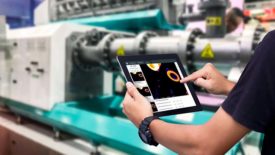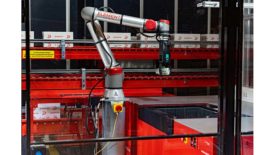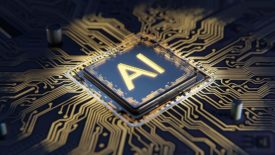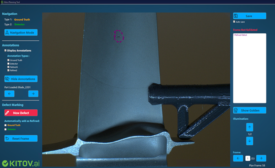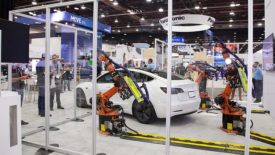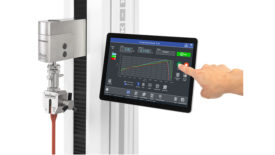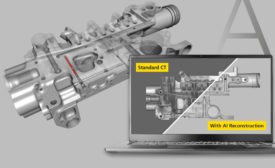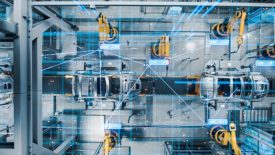Home » Keywords: » Artificial Intelligence (AI)
Items Tagged with 'Artificial Intelligence (AI)'
ARTICLES
Vision & Sensors | Vision
If we can bridge the confidence gap between underperforming legacy vision systems and manufacturers’ needs today, the rate of adoption is sure to grow exponentially.
Read More
Quality in Automation | Automation
Machine Vision Advancements Simplify, Improve Vision-Guided Robot Systems
3D Imaging, AI-Based Software, and Industrial Computing Democratize Application-Specific Automation Systems.
March 29, 2024
Quality in Automation | Artificial Intelligence
The Future of AI for Visual Inspection and Visual Quality Control in Electronics
With the rise of AI and the global restructuring of where goods are manufactured, leaders must devise a new strategy for visual quality control.
March 29, 2024
New Product
Kitov.ai Software Platform for Improved Automated Visual Inspections
March 18, 2024
Quality in Automation | Column
Robot sales poised for recovery in mid-2024 due to labor shortages, reshoring, AI
No matter the industry, companies find that to fill labor gaps and improve productivity, automating more manual tasks simply makes sense.
March 18, 2024
Quality Headline
Aionic Digital Appoints Huiza Global Chief Technology Officer
March 15, 2024
NDT | Force Measurement
Force Measurement and AI: Predicting Product Failure
How AI improves the analysis of data acquired from force measurement to prevent future product or production failures.
March 14, 2024
Edge Learning
How Harnessing Edge Learning AI Technology Simplifies Manufacturing Processes
The combination of machine vision and edge learning is a powerful tool that can aid the manufacturing process in numerous ways.
March 11, 2024
Management
Activating Creative Leadership and Collaborative Teams
Tools for fostering synergy and cultivating collaboration at your company.
February 14, 2024
EVENTS
Webinar
3/26/24 to 3/26/25
Contact: Meg K.
AI for Electronics Quality Control: Practical Applications & Case Studies
Get our new eMagazine delivered to your inbox every month.
Stay in the know with Quality’s comprehensive coverage of the manufacturing and metrology industries.
SIGN UP TODAY!Copyright ©2024. All Rights Reserved BNP Media.
Design, CMS, Hosting & Web Development :: ePublishing
